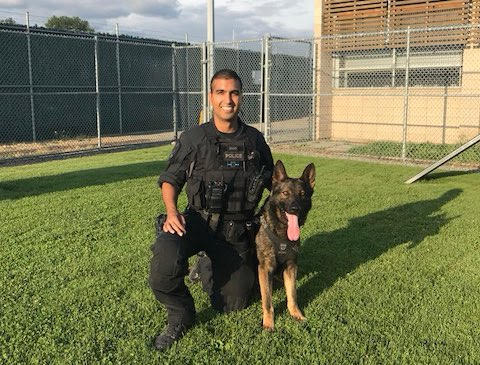Analysis: Assault Trial Starts for Vancouver “Hero” Cop

Cops almost never face charges, let alone stand trial for their violence. On June 29, one of those very rare occasions came with the opening of trial for supposed hero cop Vancouver Police Department (VPD) Cst. Simrit Roycombough—four years after the incident. Cst. Roycombough faces one count of assault contrary to Section 266 of the Criminal Code of Canada for his violent arrest of 72-year-old Evangelos Lagoudis in 2019.
The takedown and arrest in which Lagoudis was injured took place on June 9, 2019, but the VPD did not notify the IIO until weeks later. At the time, then-IIO spokesperson Rebecca Whalen told media, “I can confirm that the failure to notify the IIO was not deemed unreasonable.” Whalen’s reason was that the severity of a victim’s injuries is not always immediately apparent. However, such a delay benefits police and can serve to derail investigations.
Lagoudis told the IIO that he was walking near Strathcona Park with a woman who was his friend when he had a conversation with a uniformed officer in an unmarked SUV. During the encounter he was violently tackled to the ground by the officer and arrested. He suffered a serious injury but was taken to cells and assessed before being taken to hospital.
Upon review of the evidence, the IIO determined that reasonable grounds existed to believe that an officer may have committed offences in relation to use of force during the arrest. The IIO forwarded its report to the BC Prosecution Service for consideration of charges and the charge against Roycombough was sworn on May 19, 2022.
The section of the Criminal Code covering Cst. Roycombough’s charges can be punishable as an indictable offence, with a maximum five-year prison term, or as a summary offence, with a maximum six months term and/or a $5,000 fine.
Unaccountable Force
Between 2000 and 2017, of the hundreds of instances where a police officer killed a civilian in Canada, less than four percent resulted in charges, and out of the 18 charges laid, only two resulted in convictions. A 2020 report found that across Canada, charges were laid or forwarded to Crown prosecutors for consideration in only three to nine per cent of the cases undertaken by the provincial agencies.
In fiscal year 2020-2021, eight investigations were referred by the IIO to the BC Prosecution Service for consideration of charges. Of those eight, charges have been approved in one file, no charges were approved in two files, and the remaining five are pending charge assessment.
In fiscal year 2021-2022, the IIO received a total of 323 notifications. This number has been on a steady increase year-over-year since 2017-2018 when 173 notifications were received. They commenced 193 new investigations and referred 12 investigations to Crown Counsel (BC Prosecution Service) for consideration of charges.
There Are No Hero Cops
This represents a sharp fall for the one-time VPD “hero cop.” Roycombough received a commendation from VPD chief constable Adam Palmer in 2016 for his part in “doggedly pursuing a dangerous suspect, despite serious injury and life-threatening danger.” We’re not sure if this pun was intended since Roycombough has served with the force’s canine unit.
This should serve as a reminder that there are no hero cops, despite what police departments and copaganda media might want us to believe. Cops tend to mythologize themselves anyway, seeing whatever they do as heroic—including when they do next to nothing. All police are agents of state violence. As agents of the state they are empowered to inflict harm, without accountability for their victims and communities. They create and reproduce social conditions of harm and then intervene to pose themselves as the heroic response, while typically inflicting more harm.


